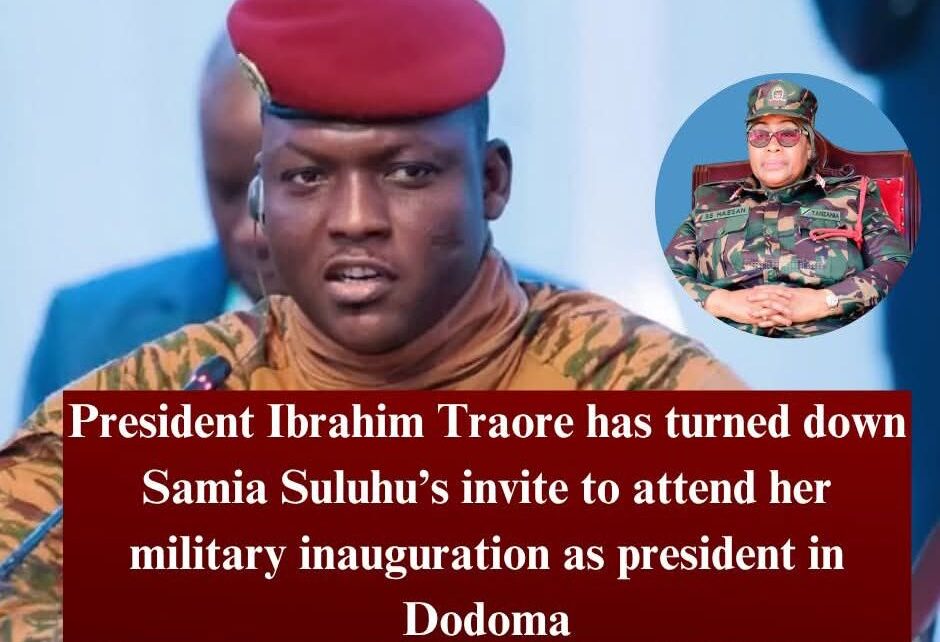In a surprising diplomatic move, Burkina Faso’s President Ibrahim Traoré has reportedly turned down an official invitation from Tanzanian President Samia Suluhu Hassan to attend her highly anticipated military inauguration ceremony in Dodoma. The event, which was expected to attract several African leaders and dignitaries, symbolizes President Samia’s growing influence and her commitment to fortifying Tanzania’s defense and security leadership.
President Traoré’s absence has sparked a wave of speculation across political and media circles in Africa. While no official statement has been released from Ouagadougou, sources close to Burkina Faso’s presidential office have indicated that the young leader declined the invitation due to pressing national matters and ongoing military operations within his country. As a leader who has maintained a strong stance on sovereignty and internal stability, Traoré has often prioritized domestic affairs over international appearances.
The military inauguration of President Samia Suluhu represents a historic moment in Tanzania’s political landscape. As the first female president in the nation’s history, her leadership continues to attract continental attention. The ceremony was designed not only to mark her formal recognition as Commander-in-Chief of the Armed Forces but also to reinforce her administration’s commitment to regional peace and security. Several African heads of state were expected to attend, reflecting the event’s continental importance.
Analysts believe that President Traoré’s decision may also carry deeper political symbolism. Known for his revolutionary leadership style and vocal criticism of Western influence in African affairs, Traoré has positioned himself as a defender of African independence and self-determination. His absence at a major East African event could therefore be interpreted as a statement of strategic non-alignment rather than a diplomatic snub.
Despite his nonattendance, relations between Tanzania and Burkina Faso remain stable. Both nations share a common vision for African unity, self-reliance, and the fight against terrorism. However, the incident underscores the growing complexity of African diplomacy, where leaders must constantly balance domestic challenges with regional expectations.
As Africa continues to experience a wave of youthful and reform-minded leadership, figures like Ibrahim Traoré and Samia Suluhu represent two distinct but converging faces of the continent’s political future — one grounded in revolutionary idealism and the other in progressive diplomacy. Whether Traoré’s decision will influence future engagements between the two leaders remains to be seen, but it has undeniably added a new layer of intrigue to Africa’s evolving political narrative.



